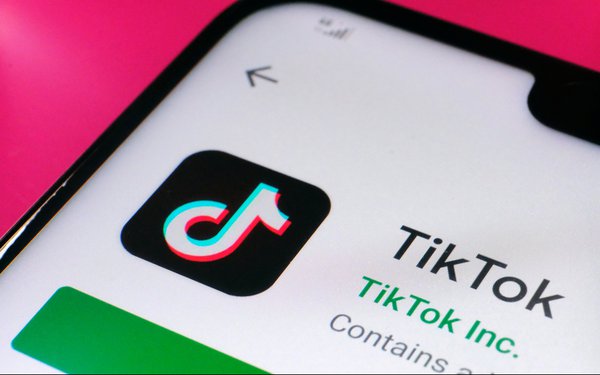
TikTok has asked an appellate court in Washington, D.C. to uphold
an injunction that prevents the Commerce Department from banning downloads of the social video app.
In papers filed late Friday, the company argues that U.S. District Court Judge Carl Nichols
correctly decided that the Commerce Department lacks authority to prevent new downloads of the app.
“The app allows millions of Americans to come together to express themselves, share
video content, and make connections with each other,” the Chinese-owned TikTok argues.
“Plaintiffs are likely to succeed on their claim that the enjoined prohibition exceeds the
executive branch’s authority,” the company adds.
The dispute dates to this summer, when President Trump said in an executive order that TikTok posed a security risk, and directed
the Commerce Department to ban all U.S. transactions with the company as of September 20. That deadline was later extended until September 27.
advertisement
advertisement
In response, the Commerce Department announced
several prohibitions, including a mandate that the major platforms stop offering the app for download.
A separate portion of the Commerce Department's order included even broader restrictions
that would have effectively shuttered the company. Last month, a federal judge in Pennsylvania blocked those restrictions from taking effect.
In September, Oracle and
Walmart agreed to purchase TikTok from ByteDance, the Chinese company that owns the app, but whether that deal will be finalized remains unclear.
When Trump issued the executive order, he
invoked the International Emergency Economic Powers Act, which authorizes the president to declare a national emergency and restrict some -- but not all -- transactions with foreign countries.
That law specifically does not authorize the president to regulate the importation or exportation of “personal communications” that don't involve a transfer of anything of value. It
also doesn't authorize regulation of “informational material,” including photos and news feeds.
TikTok challenged the ban in court for several reasons, including that the company's
service wasn't subject to a ban because it enables personal communications and the transfer of informational material.
Nichols agreed with TikTok, writing that the company had shown it was
likely to prevail with the argument that its service fell within the “informational material” and “personal communications” exceptions to the International Emergency Economic
Powers Act.
Last month, the White House appealed that decision to the D.C. Circuit, arguing that Nichols didn't adequately consider national security interests.
The Justice Department
also says Nichols incorrectly found that users' communications on TikTok lack economic value, arguing that TikTok “modeled its business on monetizing information that the company harvests from
users’ communications.”
TikTok counters in its new papers that it can't be banned under the International Emergency Economic Powers Act because the app is informational, and
enables communications -- regardless of whether the company or its users monetize the app.
“TikTok users engage in personal communication with each other on the app millions of times
every day,” the company argues.
“The plain meaning of the words 'transfer of anything of value' certainly does not allow regulation of a personal communication just because
metadata related to the communication might be monetized,” TikTok says.
The company adds that telephone service and snail mail are seen as communications services, although people pay
for postage and for phone service.
The D.C. Circuit Court of Appeals is expected to hear arguments in the case on December 14.